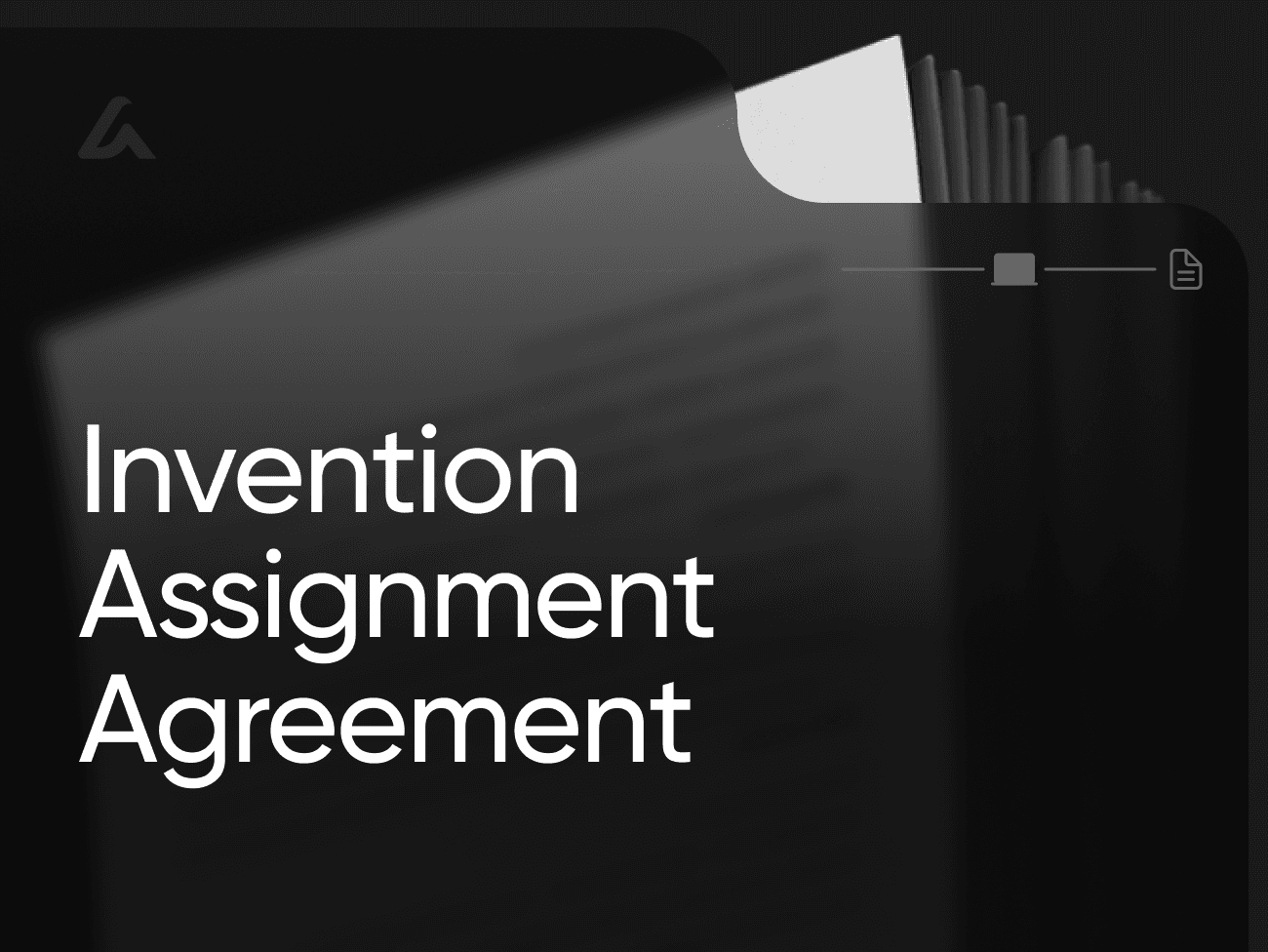AI Lawyer Blog
Freelance Contract Template (Free Download + AI Generator)

Greg Mitchell | Legal consultant at AI Lawyer
3
A Freelance Contract sets the rules of engagement between a client and an independent contractor: scope of work, deadlines, deliverables, payment terms, intellectual property, confidentiality, and termination. Clear terms protect both sides — reducing misunderstandings, late payments, and scope creep — while supporting compliance with worker-classification and privacy laws. In the United States, nonemployer (solo) businesses reached 29.8 million and generated $1.7 trillion in 2022 economic activity, underscoring how common freelance transactions have become.
Download the free Freelance Contract Template or customize one with our AI Generator — then have a local attorney review before you sign.
This guide is part of our Employment Legal Templates series — ensuring fair, enforceable workplace relationships for both employers and employees.
You Might Also Like:
Freelance Graphic Design Contract Template (Free Download + AI Generator)
Copyright Assignment Agreement Template (Free Download + AI Generator)
1. What Is a Freelance Contract?
A Freelance Contract is a written agreement governing work performed by an independent contractor for a client. It documents who is doing what, when, and for how much — plus ownership of work product, confidentiality obligations, and procedures for changes or disputes.
Because freelance engagements often operate on tight timelines and remote collaboration, a good contract also clarifies communication rhythms, review cycles, and acceptance criteria. The agreement functions as both a project roadmap and a legal shield, so that quality, deadlines, and payment are managed predictably from day one.
2. Why Freelance Contracts Matter in 2026?
Freelance work is global, digital, and fast-moving — yet payment friction and misclassification risks persist. Within the EU, policymakers link late payment to one in four SME bankruptcies, which is why strict payment-term rules and interest penalties exist; clear freelance contracts align with these expectations and reduce cash-flow risk.
Meanwhile, jurisdictions continue tightening rules around written agreements and worker status. New York State’s Freelance Isn’t Free Act requires written contracts and timely payment with enforcement mechanisms, and California’s ABC test presumes employment unless strict criteria are met — making contract precision essential.
3. Key Clauses and Components
Parties: Full legal names, addresses, and contact details.
Scope of Work: Detailed deliverables, milestones, formats, and acceptance criteria.
Timeline & Availability: Start date, deadlines, meeting cadence, and holiday coverage.
Fees & Payment: Rates, currency, invoicing schedule, late-fee/interest, expenses, and taxes.
Change Management: Process for out-of-scope requests, approvals, and updated pricing.
Intellectual Property: Who owns drafts and final work; assignment vs. license; moral-rights waivers where lawful.
Confidentiality & Data: NDA obligations, data security, and compliance with privacy laws.
Warranties & Liability: Quality standards, re-work windows, caps/limits, and exclusions.
Subcontracting & Non-solicit: When subcontracting is allowed; whether poaching staff is restricted.
Termination: Convenience and for-cause exits, cure periods, handover, and final payments.
4. Legal Requirements by Region
United States:
New York State: A written contract is required for freelance work, with model clauses and complaint processes available from the NY Department of Labor. Department of Labor
California: The ABC test presumes employee status unless the hiring entity proves independence under all three prongs; contracts should reflect genuine independence and deliverables-based work. Inside Jobs Blog
European Union: The Late Payment rules require B2B payments within 60 days (public sector 30, except in limited cases) and give automatic interest and a minimum €40 recovery fee; contracts should mirror these terms. Internal Market & Industry
United Kingdom & Canada: Privacy and consumer-protection laws apply to data in deliverables; contracts should include compliance, data-processing, and security language aligned with UK GDPR or PIPEDA, as applicable.
Always localize governing law, venue, tax handling, and invoicing rules.
5. How to Customize Your Freelance Contract?
Match scope to pricing: Use fixed-fee for clearly defined deliverables; time-and-materials for evolving work.
Choose the right IP model: Full assignment when the client needs ownership; a license when the freelancer keeps portfolio rights.
Set SLA-style acceptance: Define review windows, defect categories, and turnaround times.
Align with payment regimes: In the EU, reflect statutory late-payment interest and recovery fee; in New York, reference timely payment duties. Internal Market & Industry+1
Add data and security controls: If personal data is handled, include processing purposes, retention, and minimum safeguards.
Include classification signals: Independent schedule, provision of tools, deliverables-based pay, and no control over methods — consistent with applicable tests.
6. Step-by-Step Guide to Drafting One
Step 1-Define the engagement: Write a one-paragraph project summary and list measurable deliverables.
Step 2-Select the pricing model: Choose fixed fee or hourly/day rate and add invoicing cadence with due dates.
Step 3-Write acceptance criteria: Specify what “done” means, the review period, and revision limits.
Step 4-Set IP ownership: Decide assignment vs. license; state when ownership transfers (e.g., upon full payment).
Step 5-Add confidentiality and data terms: Cover NDA scope, data categories, and minimum security standards.
Step 6-Address timeline and availability: Add milestones, meetings, and communications channels.
Step 7-Insert change-control: Require written approval for out-of-scope work with updated fees.
Step 8-Define payment protections: Add late-fee interest, recovery costs where permitted, and suspension for non-payment.
Step 9-Handle termination and handover: Provide cure periods and specify what files/credentials are delivered at exit.
Step 10-Localize compliance: Add governing law, tax statements, and references to applicable statutes or guidelines.
7. Tips for Clarity and Risk Reduction
Be specific: Replace generalities (“marketing support”) with discrete outputs (“three 800-word articles with edits”).
Use tables and annexes: Put deliverables, schedules, and rates in easy-to-update schedules.
Control scope creep: Require written change orders before extra work starts.
Right-size liability: Use caps tied to fees; exclude indirect damages where lawful.
Document independence: Clarify tools, hours, and methods are the contractor’s choice (outcome-based).
Mirror payment law: Where applicable, reflect EU late-payment interest and minimum recovery fee to deter slow payers.
8. Checklist Before You Sign
Parties and contacts are correct and complete.
Scope, deliverables, and acceptance criteria are specific and measurable.
Fees, invoicing schedule, and late-payment terms are unambiguous.
IP ownership, license scope, and transfer timing are stated.
Confidentiality, data protection, and security clauses are included.
Change-control and revision limits are documented.
Termination rights, cure periods, and handover obligations are clear.
Governing law, venue, and compliance references are localized.
Download the Full Checklist Here
9. Common Mistakes to Avoid
Vague deliverables that invite disputes.
No acceptance criteria or revision limits.
Missing late-payment protections or interest language.
Ambiguous IP terms that fail chain-of-title.
Ignoring data-protection obligations when handling customer data.
No written change-order process, leading to unbilled work.
10. FAQs
Q: What’s the difference between a freelance contract and an employment agreement?
A: Employment agreements govern employees who work under the company’s control, often with benefits and payroll tax withholding. Freelance contracts define project-based work by independent businesses that control methods and schedules. Because misclassification carries legal and tax risks, align your contract and practices with local tests (e.g., California’s ABC) and document independence.
Q: Should the client own the work product or just license it?
A: It depends on use. If the client needs exclusive, downstream rights (e.g., software source code, brand assets), an assignment may be appropriate. For creative portfolios or reusable code libraries, a license can suffice while the freelancer retains ownership. Many deals use “assignment upon full payment” to balance leverage and clarity.
Q: How do I deter late payment?
A: Use milestone billing, deposits, and explicit due dates. Where law allows, include late-payment interest and recovery fees. In the EU, statute provides interest plus a minimum €40 recovery fee; mirroring these terms in the contract sets expectations and simplifies enforcement. Keep clear invoicing instructions and suspend work for non-payment where permitted.
Q: What should a contract say about revisions?
A: Specify how many rounds are included, what qualifies as a revision versus a change in scope, and the turnaround time for feedback. Tie added revisions to a rate card. Clear revision language prevents schedule drift and protects budgets for both sides.
Q: Do I always need a written contract?
A: Yes — besides being best practice, some jurisdictions require it. New York State’s law mandates written contracts for freelance work and provides enforcement routes for non-payment. Written terms reduce misunderstandings, support lawful classification, and speed dispute resolution if things go wrong. Department of Labor
Sources and References
Statistics and legal information in this guide draw from the U.S. Census Bureau’s Nonemployer Statistics, which reported 29.8 million nonemployer businesses generating $1.7 trillion in receipts for 2022.
Freelancer protections and compliance references include the New York State Department of Labor – Freelance Isn’t Free Act, the California Labor Code and ABC Test under Assembly Bill 5 (AB5), and the European Commission – Late Payment Directive 2011/7/EU.
Additional guidance on privacy and data obligations derives from the UK Information Commissioner’s Office (ICO), Canada’s Personal Information Protection and Electronic Documents Act (PIPEDA), and the General Data Protection Regulation (GDPR).
These resources outline best practices for contract drafting, freelancer protections, and international compliance in 2026.
Disclaimer
This article is for informational purposes only and does not constitute legal advice. Laws and regulations change by jurisdiction and over time. Always consult a licensed attorney in your area before preparing, signing, or relying on a Freelance Contract.
Get Started Today!
A precise Freelance Contract keeps projects on track, accelerates payment, and reduces disputes. Use clear deliverables, acceptance criteria, and payment protections, then localize for your jurisdiction.
Download the free Freelance Contract Template or customize one with our AI Generator — then have a local attorney review before you sign.
Explore more resources in our Employment Legal Templates series to ensure fair and enforceable workplace relationships.
You Might Also Like:



